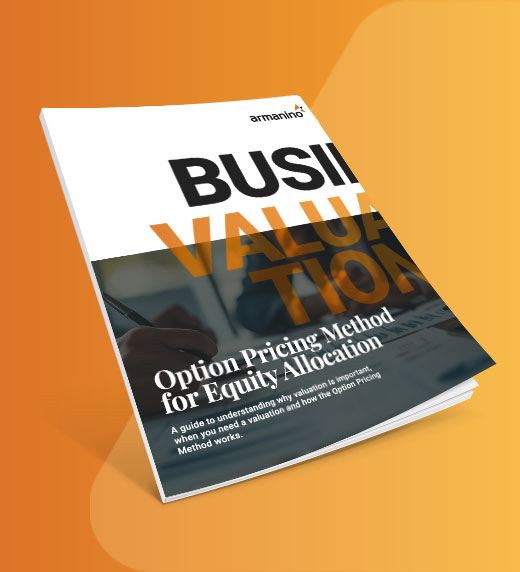
An initial public offering (IPO) is a key milestone in a business’s growth, not an end goal by itself. Instead, it starts a new phase in your company's lifecycle that requires careful preparation and management. It’s not about simply going public — the real challenge lies in staying public and thriving in the complexities of the financial markets.
For CFOs of pre-IPO companies, leading this transition is no small task. It requires meticulous planning, clear processes and an effective team. To make a successful shift, your company will need rigid internal processes and must meet strict requirements around financial reporting, internal controls and other key areas. As CFO, you play a central role in IPO readiness by helping put in place the people, processes and technology your company needs to meet its compliance obligations and flourish as a public entity.
As you prepare for an IPO, here are some key areas to focus on:
An IPO is a detailed and multifaced process with many steps to complete and roles to fill. As CFO, preparing for an IPO means stepping into a leadership role that touches every part of the business. You’re building the right team, shaping your organization’s financial story for investors, meeting compliance requirements and putting the right systems and providers in place.
These challenges call for a different kind of leadership than what’s needed to grow a young startup. Taking an organization through an IPO is often a career milestone for a CFO, and for many, it’s the first time . That’s why it’s so important to surround yourself with a team and advisors who’ve been through the IPO process before.
A successful IPO starts with making sure your company is set up to handle the demands ahead. That means having the right structure, the right people and a culture rooted in transparency, accountability and operational excellence. These are the things that help build trust with investors.
Watch this detailed breakdown on Organizational Readiness and Planning to learn more about essential preparatory steps:
One of the first areas CFOs often need to strengthen is the finance team’s technical capabilities. Public companies face much more complex reporting and compliance requirements than private entities, so it’s important to bring in people with the right experience.
For example, you’ll need strong financial planning and analysis (FP&A) professionals. Investors will be watching your revenue and expense forecasts closely, so it's critical to get those right. And, you’ll need to have effective reporting controls and capabilities in place to back them up and prevent unwanted surprises.
Depending on where you list your company, you may also need an internal audit team or an internal audit services provider. They’ll help reassure investors and regulators that your firm's compliance practices are solid and your financial statements are accurate. From simplifying accounting processes to mastering the nuances of quarterly reporting, these areas are key to maintaining credibility and avoiding regulatory pitfalls.
Discover actionable strategies on Accounting, Reporting, Tax and Treasury in this video:
One major difference between public and private companies is the need to report financial results on a quarterly basis. In addition to revenue, profits and expenses, you’ll have to identify the metrics, both GAAP and non-GAAP, that help tell a compelling story about your company’s performance and future opportunities to investors and other stakeholders.
Alongside the numbers, you’ll also be expected to clearly explain what they mean. This includes preparing a management discussion and analysis (MD&A) section that outlines your financial reporting metrics and why you believe they're helpful to investors. You must also disclose any material trends or other significant information that could affect your results or operations.
The shift to quarterly reporting can be a big adjustment for finance teams. To ease the transition, it’s a good idea to start practicing the full reporting process before the IPO, as if you were already public.
Technology plays a big role in making this work. Many growing companies rely on a mix of tools and manual processes, which can slow things down and increase the risk of missed deadlines, potentially leading to regulatory concerns and investor disappointment. Because public companies face tighter deadlines and stricter disclosure requirements, having the right technology in place is the backbone of IPO readiness.
An IPO-ready software infrastructure typically includes cloud-based enterprise resource planning (ERP), customer relationship management (CRM), budgeting and forecasting, and equity management systems. These systems must be integrated so your team can manage tasks like disclosure requirements and financial projections efficiently and accurately.
To go a step further, consider automation tools for financial close processes and control documentation software. For example, software that transfers data between systems and formats documents automatically can save time and reduce errors. You can also use control documentation software that explains your controls and how they work, including the rationale behind them — something investors and auditors will expect to see.
Accurate financial planning and analysis (FP&A) is critical to navigating public markets. As CFO, you must lead the integration of strategic forecasts and financial modeling, helping ensure decisions are data driven and investors are confident in your company’s financial story.
Watch this video to learn more about Finance Effectiveness and FP&A:
Attracting and retaining top talent is vital during an IPO, and compensation structures often come under scrutiny. From equity plans to SEC compliance, it’s important to understand the complexities of compensation and ensure your approach aligns with both employee expectations and shareholder interests. For example, the SEC continues to closely examine areas like executive compensation and regularly issues updates and provisions, such as those under the Dodd-Frank Act.
Another common talent challenge you may face is strengthening your finance team. Operating as a public company requires seasoned professionals with deep expertise in financial reporting, compliance and FP&A. Key roles include:
Explore Compensation and HR topics further in this video:
Before going public, your company will need to develop, test and document a strong framework for its internal controls, especially around financial reporting. In addition to meeting regulatory requirements, strong controls help assure investors that your company's financial results and disclosures are accurate and reliable.
If you haven't worked with an external auditor before, now’s the time to get ready. Clean records and well-documented processes can make the audit run more smoothly and help reduce audit-related fees. Proper preparation and investment on the front end can help save you time, money and stress later.
It's also helpful to treat an external audit as an ongoing process, not just a once-a-year event. As CFO, you and your audit committee chair should meet regularly with the external auditors, at least quarterly, to review operations, financial results and any technical accounting issues. Having these discussions outside of the formal audit process can help you reduce tension, avoid surprises (and fees) and keep things running smoothly.
IPO compliance demands strong internal controls over financial reporting (ICFR). From developing and testing these controls to working closely with external auditors, establishing a solid framework demonstrates your company's operational transparency and builds investor confidence. Regular audits and collaborative discussions with auditors help ensure a seamless IPO transition.
Beyond financial controls, strong governance frameworks, legal safeguards and compliance protocols lay the foundation for operating as a successful public company.
Learn how to establish these essential structures in this Governance, Legal, Compliance, and IT video:
As CFO, refining your storytelling skills is key to cultivating investor confidence and navigating capital markets. A strong investor relations and media strategy helps shape the narrative around your company and can play a big role in securing a strong initial valuation.
Once you go public, your world will begin to expand very rapidly. You won’t just be answering to your board or private equity group anymore. Instead, you’ll also be engaging with the SEC, PCAOB, public investors, analysts and legal counsel, each with their own expectations and information requirements.
You’ll need clear systems and communication plans in place to keep all of these stakeholders informed and aligned. And it’s not just external audiences that matter. Going public will impact your entire organization, so it’s just as important to communicate with your internal stakeholders and help them understand what an IPO means for them.
Watch this video for expert tips on Capital Markets Strategy, Media and Investor Relations:
Going public is just the beginning; staying public is what really counts. With the right tools, team and guidance, you can build a story investors believe in for the long haul. Want to make sure you’re fully prepared for what’s ahead? Get an IPO readiness checklist and learn how our IPO readiness experts can help you make a successful transition and thrive as a public company.
Reach out today for a private strategy session to gauge where you’re at in your IPO journey and where to focus next.


